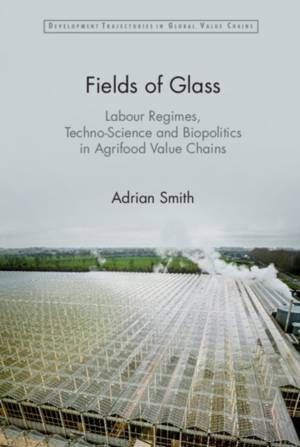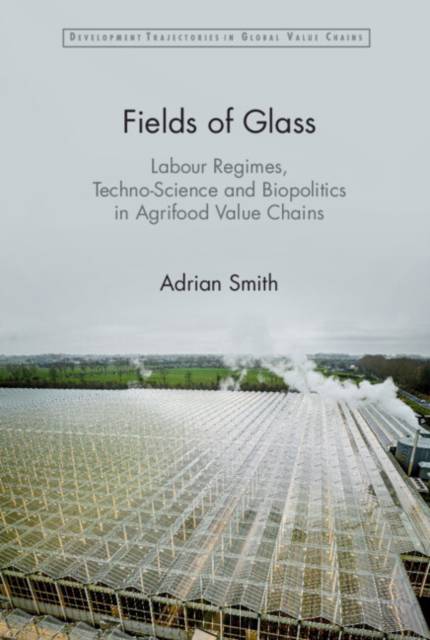
Bedankt voor het vertrouwen het afgelopen jaar! Om jou te bedanken bieden we GRATIS verzending (in België) aan op alles gedurende de hele maand januari.
- Afhalen na 1 uur in een winkel met voorraad
- In januari gratis thuislevering in België
- Ruim aanbod met 7 miljoen producten
Bedankt voor het vertrouwen het afgelopen jaar! Om jou te bedanken bieden we GRATIS verzending (in België) aan op alles gedurende de hele maand januari.
- Afhalen na 1 uur in een winkel met voorraad
- In januari gratis thuislevering in België
- Ruim aanbod met 7 miljoen producten
Zoeken
Fields of Glass
Labour Regimes, Techno-Science and Biopolitics in Agrifood Value Chains
Adrian Smith
€ 187,45
+ 374 punten
Omschrijving
What is the relationship between technology and labour regimes in agrifood value chains? By deploying the concept of agrarian biopolitical articulations, Field of Glass formulates new perspectives that bridge the hitherto distinct worlds of value chain research, agrarian political economy, labour regime theory, and agrarian techno-science to explain the enduring insecurity of food systems in the United Kingdom. Using both historical and contemporary research, Adrian Smith explores how the precarity and exploitation of migrant labour intersects with ecology and techno-science/innovation, such as hydroponic and robotic technologies, to explain the development and changing nature of glasshouse agrifood value chains in the UK. Smith concludes by reflecting on how agrarian bio-politics have shaped the glasshouse agrifood sector and the emergence of contemporary 'high road' and 'low road' strategies, highlighting their contradictions and negative consequences for local development and food supply security.
Specificaties
Betrokkenen
- Auteur(s):
- Uitgeverij:
Inhoud
- Aantal bladzijden:
- 263
- Taal:
- Engels
- Reeks:
Eigenschappen
- Productcode (EAN):
- 9781009452847
- Verschijningsdatum:
- 19/06/2025
- Uitvoering:
- Hardcover
- Formaat:
- Genaaid
- Afmetingen:
- 152 mm x 229 mm
- Gewicht:
- 521 g

Alleen bij Standaard Boekhandel
+ 374 punten op je klantenkaart van Standaard Boekhandel
Beoordelingen
We publiceren alleen reviews die voldoen aan de voorwaarden voor reviews. Bekijk onze voorwaarden voor reviews.









